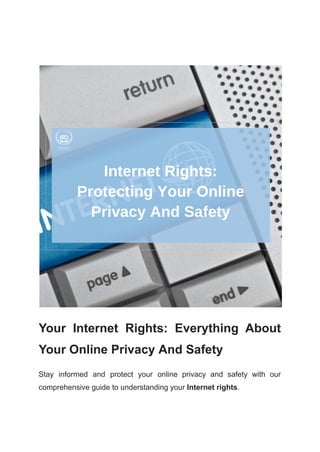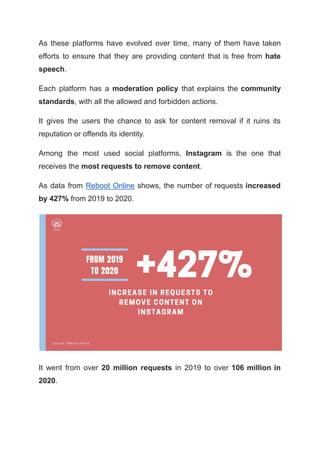The document provides a comprehensive overview of internet rights, highlighting their significance as an extension of human rights that protect online freedom, privacy, and non-discrimination. It discusses the historical evolution of these rights, the role of various stakeholders, and global efforts to ensure their protection, including key principles established by the European Union and the UN. Additionally, it offers practical tips for individuals to safeguard their privacy and emphasizes the collective responsibility of governments, companies, and citizens in defending these rights.




![Compliance with these rules shall be subject to control by an
independent authority.”
In 2021, EU member states sign a declaration on the rights and
principles that will guide digital transformation in the EU.
As stated in the introduction to the document:
“We believe in a human-centred digital transition. [...] To capture this
better, we will formulate a set of digital principles. Such as access for all
to the Internet; a secure online space; the right to learn digital skills;
algorithms that respect people; the protection of children online.
These important principles will complement the legal rights that already
protect Europeans online like the protection of personal data or the
freedom of expression.”
This was preceded by the Berlin Declaration on the Digital Society and
the Lisbon Declaration on Digital Democracy.
These laid the foundation for a pan-European dialogue on digital
rights.
European Declaration on Digital Rights and Principles for
the Digital Decade
In 2022, the texts mentioned so far will lead to the creation of an official
document at the European level that will unify all fundamental digital
rights and the principles that govern them.
This is the "European Declaration on Digital Rights and Principles for the
Digital Decade".](https://image.slidesharecdn.com/pdfinternetrights-230509151810-d5a7de41/85/Internet-rights-pdf-5-320.jpg)











